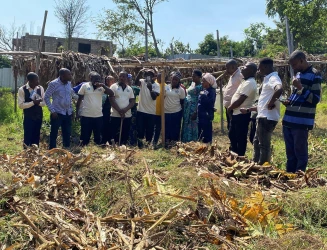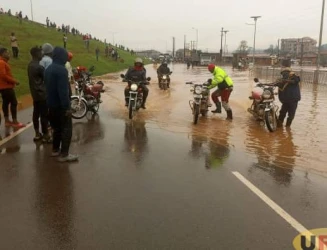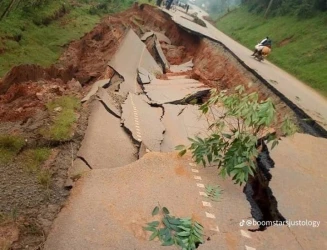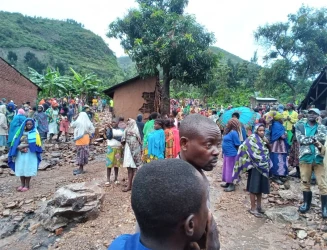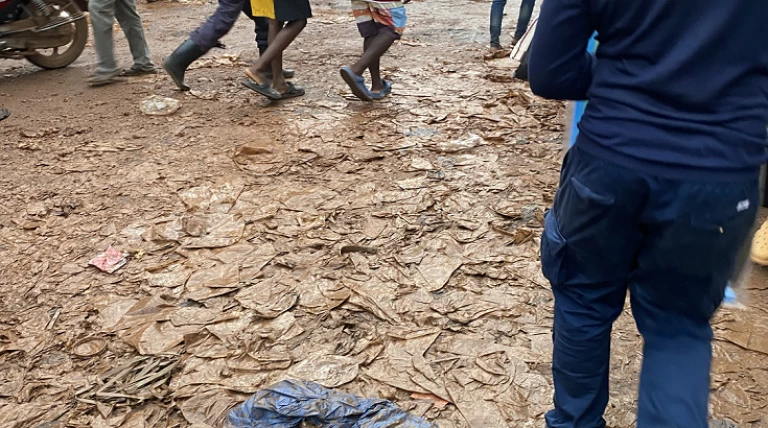
Uganda’s Plastic Problem: A Fight for Our Future
Picture this: you’re walking through the vibrant streets of Kampala, the sun shining, vendors calling out, and the smell of roasted matoke in the air. But as you dodge puddles from last night’s rain, you notice something else—plastic bags, bottles, and wrappers clogging the drains and littering the sidewalks. It’s a sight that’s all too common in Uganda, where we’re drowning in over 1,500 tonnes of plastic waste every single day. Only about 200 tonnes of it gets collected or recycled, according to the folks at the National Environment Management Authority (NEMA). The rest? It’s choking our rivers, harming our wildlife, and even threatening our health. As someone who loves Uganda’s beauty, I can’t help but feel we’ve got to do something about this mess. Here’s what’s happening, why it matters, and how we’re starting to fight back.
The Plastic Takeover:
If you’ve ever bought street food wrapped in a kaveera (those thin plastic bags we all know too well), you’re part of the problem—and so am I. Single-use plastics like these bags, bottles, and straws are everywhere in Uganda, especially in cities like Kampala. They’re cheap, convenient, and part of daily life. But here’s the kicker: they can take up to 450 years to break down. That’s longer than any of us will be around! And when they do break down, they turn into tiny bits called microplastics that sneak into our soil, water, and even our bodies. Scientists have found microplastics in human blood and lungs—yikes! They’re linked to serious health issues like cancer, especially for women.
Then there’s the environmental toll. Plastic waste is clogging Lake Victoria, killing fish and threatening the livelihoods of fishermen. It’s blocking drainage systems, making floods worse when the rains hit. And when people burn piles of plastic to get rid of them, it releases toxic smoke that’s like a punch to our climate, with black carbon that’s up to 5,000 times worse for global warming than carbon dioxide. For a country where two-thirds of us depend on farming, this is a big deal—plastic is literally choking the land we live on. The Struggle to Fight Back
Uganda’s trying to tackle this. Back in 2019, the government banned those flimsy kaveera under 30 microns thick, and there are laws pushing plastic companies to recycle. But let’s be real—enforcement is a struggle. Some businesses still churn out single-use plastics, and NEMA doesn’t have the resources to crack down properly. Compare that to Rwanda, where they’ve got a tight plastic ban and community cleanups called Umuganda that keep things in check. Here, it feels like we’re stuck in first gear. Part of the issue is that a lot of us don’t even realize how bad plastic waste is. I’ve seen people toss kaveera out of car windows without a second thought. And honestly, when you’re buying food for your family, it’s hard to say no to the convenience of plastic. We need better options—affordable, eco-friendly ones—and more education to help people understand why this matters.
Heroes in the Trenches:
But here’s where it gets exciting: Ugandans are stepping up in incredible ways. In Gulu, a group called Takataka Plastics is turning old plastic bottles into things like face shields, construction materials, and even household goods. They’re giving jobs to young people, including those who’ve been living on the streets. In Masaka, Eco Brixs is doing amazing work, hiring people with disabilities to recycle plastic into paving bricks and fence posts. They’ve also taught 25,000 kids in 53 schools about reducing, reusing, and recycling. How cool is that? Then there’s Reform Africa in Mpigi, where women are weaving old plastic bags into new products, turning trash into treasure. Women are actually leading the charge—80% of plastic waste collectors in Uganda are women, according to a 2021 study by Allcot. These ladies are out there cleaning up our communities, but they need more support to grow their efforts. And groups like Eco Ways Uganda are collecting plastics to make tables and fencing poles, with big plans to stop litter from reaching Lake Victoria.
What We Can Do
So, how do we fix this? First, the government needs to get serious about enforcing plastic bans. No more loopholes for big companies! We also need better waste systems—more collection points, recycling plants, and support for the folks already doing the hard work. Imagine if every town had a place to drop off plastics and get paid for it, like some of the programs Coca-Cola’s been backing in Kampala. But it’s not just on the government. We’ve all got a role to play. I’m trying to cut back on single-use plastics—carrying a reusable bag, saying no to plastic straws, that kind of thing. It’s not always easy, but every little bit helps. We can also support local businesses making paper or cloth alternatives and cheer on the startups turning waste into something useful. And let’s talk about it—spread the word to friends and family about why plastic pollution is a big deal.
On the global stage, Uganda’s part of a 2022 UN agreement to tackle plastic pollution worldwide. That’s huge, because some of our plastic waste comes from richer countries sending us their trash in exchange for our coffee or tea. We need to hold them accountable too.
Let’s Keep Uganda Beautiful Plastic waste is messing with Uganda’s rivers, farms, and future, but we’re not helpless. From women weaving new life into old bags to kids learning to recycle, Ugandans are showing the world how to fight back. Let’s keep pushing, support local heroes, ditch single-use plastics, and demand stronger action from our leaders. Uganda’s called the Pearl of Africa for a reason, and together, we can make sure it shines for generations to come.
Source : Alpha Mai Africa
